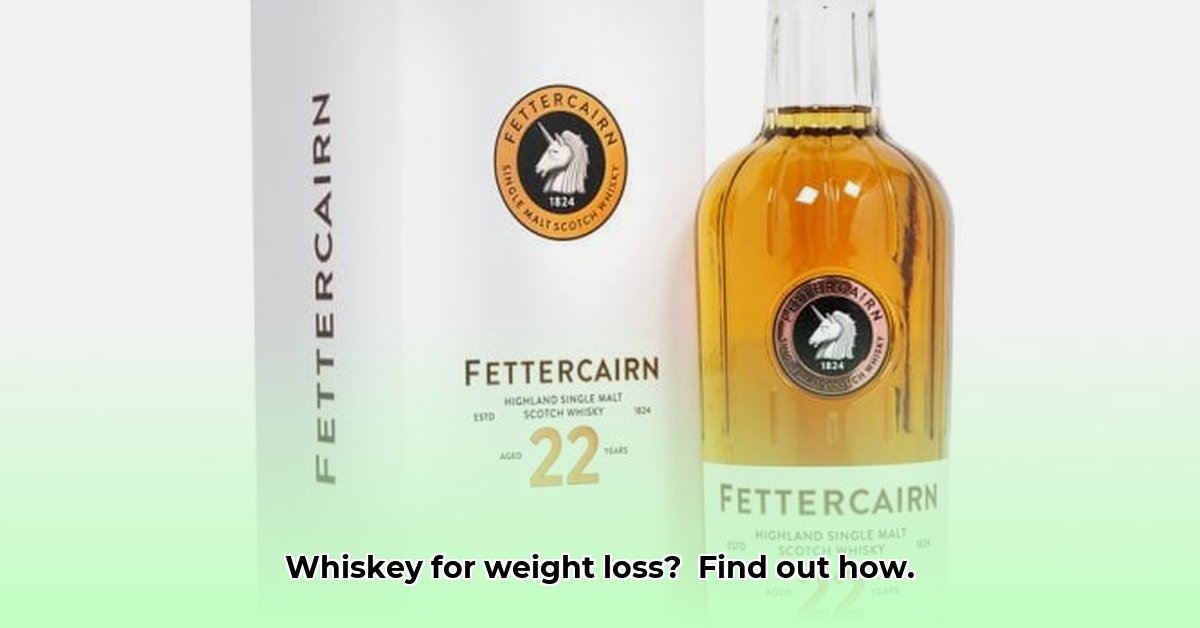
Understanding the Complex Relationship Between Whiskey and Weight Management
The notion of whiskey contributing to weight loss might seem counterintuitive. Alcohol, in general, isn't typically associated with dieting. Yet, the relationship between whiskey and weight management is surprisingly nuanced, defying simple categorization. This review analyzes the available evidence, exploring the caloric content of whiskey, its metabolic effects, and its influence on appetite and sleep. Ultimately, we aim to determine whether incorporating whiskey into a weight loss plan is genuinely feasible.
Calorie Content: Weighing the Initial Advantage
A standard 1.5-ounce shot of whiskey contains approximately 100 calories. This is significantly lower than comparable servings of beer or wine. However, focusing solely on calorie count would provide an incomplete picture. This initial advantage is quickly overshadowed by other metabolic and behavioral factors. The question then becomes: Does this lower calorie count outweigh the potential negative impacts?
Metabolic Impacts: More Than Just Empty Calories
Unlike carbohydrates or fats, the body prioritizes alcohol metabolism. This process temporarily halts fat burning, diverting energy towards alcohol processing. This metabolic shift can hinder weight loss efforts, regardless of seemingly low overall calorie intake. It's crucial to understand that these "empty calories" don't fuel the body in a beneficial way, unlike nutrients from food.
Appetite Regulation: The Hidden Calorie Culprit
Alcohol frequently disrupts appetite regulation. The familiar late-night cravings after consuming alcohol are a testament to this. These additional calories from increased snacking easily negate any potential weight loss benefits from whiskey's lower calorie count. This is a critical factor to consider; controlling appetite is essential for successful weight management.
Sleep Disruption: A Silent Weight Gain Saboteur
Poor sleep strongly correlates with weight gain. Although alcohol initially induces sleepiness, it later disrupts sleep cycles, resulting in less restful sleep. This disruption leads to hormonal imbalances that hinder weight loss. The impact of alcohol on sleep quality is a significant consideration often overlooked in the weight loss equation.
The Whiskey Verdict: A Balanced Assessment
Based on current evidence, integrating whiskey into a weight loss strategy is unlikely to yield positive results. While whiskey boasts fewer calories than some other alcoholic beverages, the negative impacts on metabolism, appetite, and sleep ultimately outweigh this minor advantage. The potential for hindering weight loss significantly outweighs any theoretical benefits.
Moderation and Mindful Choices: Striking a Balance
If you choose to consume alcohol, moderation is vital. Limiting intake to a single serving, opting for whiskey on the rocks or with a low-calorie mixer (like diet soda or sparkling water), and mindful eating are key strategies. It's about finding a balanced approach. Remember, sustainable weight loss hinges on a holistic approach encompassing diet, exercise, and sleep.
The Holistic Approach: Beyond the Dram
Sustainable weight loss requires a comprehensive strategy encompassing a balanced diet, regular exercise, sufficient sleep, and stress management. While an occasional alcoholic beverage might be acceptable, alcohol should not be a central component of any weight loss plan.
Weighing the Pros and Cons: A Comprehensive Overview
| Pros | Cons |
|---|---|
| Lower calories compared to beer or wine | Interferes with fat burning |
| Can replace higher-calorie alcoholic drinks | Often increases appetite, leading to increased calorie consumption |
| Lower in sugar than many other drinks | Disrupts sleep, creating hormonal imbalances that impede weight management efforts |
| Potential stress reduction | High caloric density, offering little nutritional value |
| May promote feelings of satiety (short-term) | Potential for dependence and associated health consequences |
Navigating the Path to Weight Loss With Occasional Whiskey Consumption
The key is mindful consumption and integration with a healthy lifestyle. Choosing lower-calorie options and avoiding excessive intake are essential. The focus should be on a holistic approach to health and wellbeing, where alcohol plays a minor, occasional role. Remember, there's no single solution for weight loss; a personalized approach is crucial. Consulting a nutritionist or dietitian will help tailor a plan aligned with individual needs and goals.